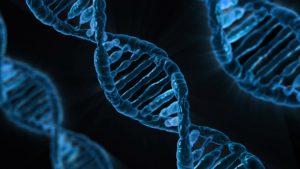 A number of private investigators are spearheading a call for people to contribute their genetic information to a public genealogy database to help solve cold cases. The idea is to get people to transfer profiles compiled by commercial genealogy sites, like Ancestry.com and 23andMe, onto the public open-source database GEDmatch. The reason is simple. The commercial sites require search warrants for authorities to obtain the information, while the public site doesn’t.
A number of private investigators are spearheading a call for people to contribute their genetic information to a public genealogy database to help solve cold cases. The idea is to get people to transfer profiles compiled by commercial genealogy sites, like Ancestry.com and 23andMe, onto the public open-source database GEDmatch. The reason is simple. The commercial sites require search warrants for authorities to obtain the information, while the public site doesn’t.
GEDmatch made headlines recently after the database was used to catch the Golden State Killer, the rapist and murderer who had eluded California authorities for decades. Prosecutors allege that suspect Joseph DeAngelo, a former police officer, is the person responsible for at least a dozen murders and roughly 50 rapes in the 1970s and ’80s. Now, private investigators want to widen the pool with a larger array of genetic information to help find other criminals who have eluded capture.
A California-based group called the DNA Doe Project is encouraging its thousands of online supporters to contribute to the public database. The database is a valuable asset to the group, which has already used it to identify two bodies that had remained unidentified for more than a decade. A Utah-based group of investigators and attorneys called the Utah Cold Case Coalition is also making a similar appeal to the public.
Some are calling for caution before uploading genetic information to a public genealogy database like GEDmatch. American Civil Liberties Union legal fellow Vera Eidelman commented, “That one click between Ancestry and 23andMe and GEDmatch is actually a huge step in terms of who has access to your information.” She also warns that when someone uploads their own DNA profile, they are also adding everyone in their family, including dead relatives and future children. The user agreement on GEDmatch clearly states it can’t guarantee how results will be used.
Legal questions surround the use of genealogy databases to solve cold cases, but the technique is likely to be allowed based on current law. Under the laws currently on the books, an individual’s right to privacy does not extend to material they’ve abandoned, whether it’s DNA or trash. In the Golden State Killer case, the material initially used to identify the suspect was willingly uploaded to the database by a distant family member and the results were confirmed by DNA discarded in a trash receptacle by the suspect.
